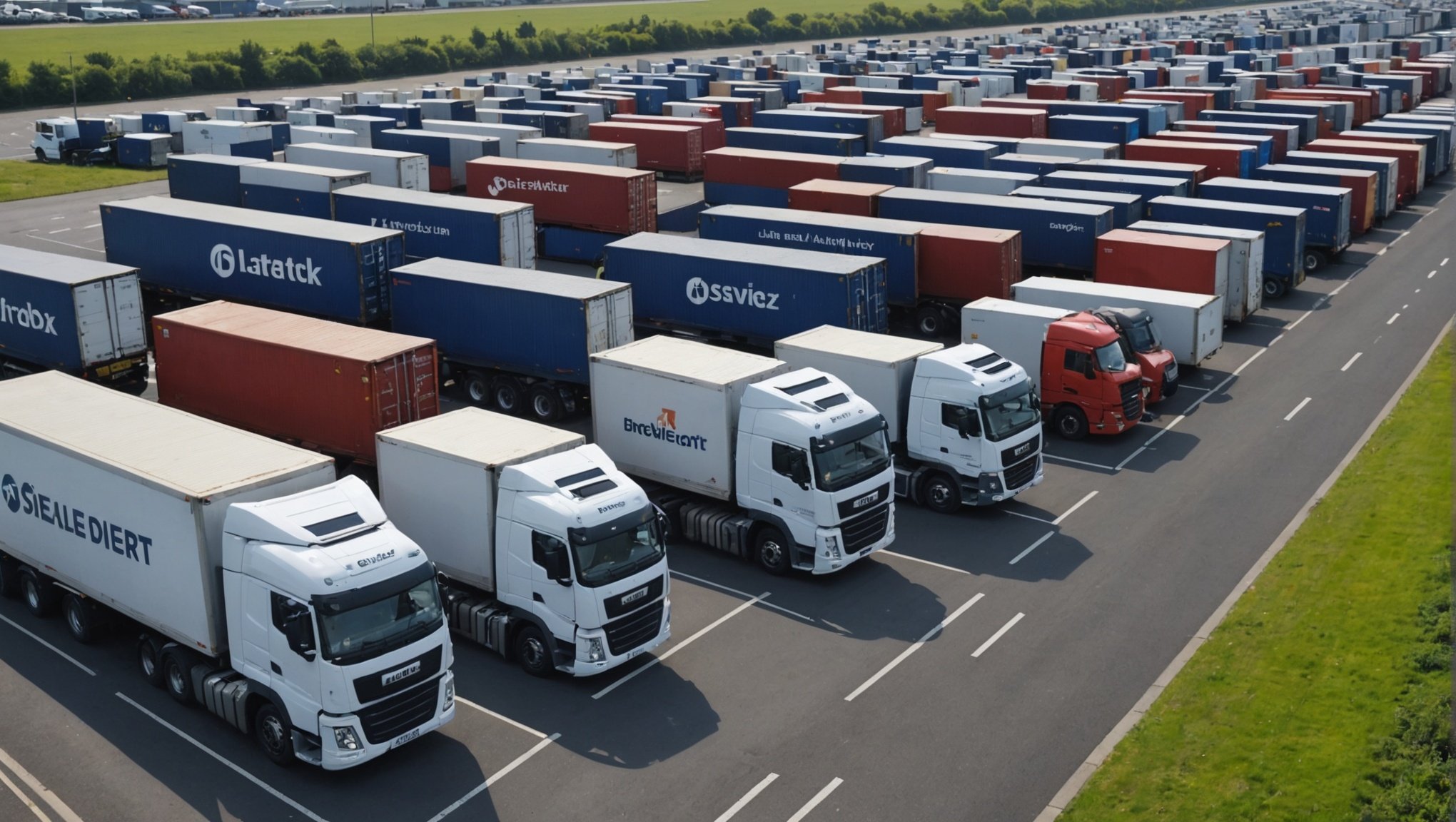Artificial intelligence (AI) is transforming industries around the world, and the UK’s logistics sector is no exception. As businesses strive for efficiency and cost-effectiveness, AI offers innovative solutions for fleet management, particularly in logistics. This article explores how AI can enhance fleet management systems within the UK logistics industry, delving into its impact on safety, real-time operations, predictive maintenance, and overall supply chain management.
AI is becoming a cornerstone for modern fleet management systems, driven by advancements in technologies such as machine learning and predictive analytics. These technologies enable businesses to analyze data comprehensively, making informed decisions that improve operational efficiencies and reduce costs.
Topic to read : How Can AI Enhance the Effectiveness of UK’s Cybersecurity Measures?
The integration of AI in fleet management is reshaping the way fleet managers oversee their vehicles and drivers. Through real-time monitoring and automated processes, fleets can operate more safely and efficiently than ever before. This transformation is particularly significant for the logistics sector, where timely delivery and operational safety are critical.
Enhanced Safety and Driver Behavior
One of the most profound impacts of AI in fleet management is the enhancement of fleet safety. AI-driven systems can continuously monitor driver behavior, identifying patterns that could indicate unsafe practices. For example, AI can detect instances of harsh braking, rapid acceleration, or prolonged idling, all of which can contribute to vehicle wear and tear and increase the risk of accidents.
Additional reading : What Are the Benefits of Using AI for Predictive Policing in UK Urban Areas?
By analyzing this data, fleet managers can implement targeted training programs to address specific safety concerns. This proactive approach not only improves driver safety but also helps maintain the integrity of the vehicles, thereby reducing maintenance costs and downtime.
Furthermore, AI-powered predictive analytics can forecast potential safety issues before they arise. By assessing historical data and current conditions, AI systems can predict when a component is likely to fail, allowing for timely maintenance and preventing costly breakdowns on the road.
Real-Time Fleet Management
The ability to monitor and manage a fleet in real-time is a game-changer for the logistics industry. AI-driven fleet management systems provide live updates on vehicle location, driver behavior, and overall fleet operations. This real-time visibility enables fleet managers to respond swiftly to any issues, such as traffic delays or vehicle malfunctions.
Real-time data also facilitates more efficient route planning. AI can analyze traffic patterns and road conditions to suggest optimal routes, minimizing fuel consumption and reducing delivery times. This is particularly valuable in urban areas where congestion can significantly impact logistics operations.
Moreover, real-time monitoring allows for better inventory management. AI can track the location and status of goods, ensuring that they are delivered on time and in the right condition. This level of precision is crucial for maintaining customer satisfaction and optimizing the entire supply chain.
Predictive Maintenance and Operational Efficiency
Predictive maintenance is another area where AI is making a significant impact. Traditional maintenance schedules are often based on mileage or time intervals, which can lead to unnecessary servicing or unexpected failures. AI changes this by analyzing vehicle data to predict when maintenance is actually needed, based on wear and tear, driving conditions, and other relevant factors.
This approach not only reduces maintenance costs but also enhances vehicle availability. Predictive analytics can identify potential issues before they become critical, allowing for repairs to be scheduled during non-peak hours, thus minimizing disruption to fleet operations.
In addition to maintenance, AI can optimize other aspects of fleet operations. For example, AI-driven systems can automate administrative tasks such as logging driving hours, tracking fuel consumption, and managing supply chains. This automation frees up time for fleet managers to focus on strategic decision-making and improving overall fleet performance.
The Future of Fleet Management with Autonomous Vehicles
The future of fleet management in the logistics sector is likely to be heavily influenced by autonomous vehicles. While still in the early stages of deployment, autonomous vehicles have the potential to revolutionize logistics by reducing the need for human drivers and increasing operational efficiency.
AI is at the heart of autonomous vehicle technology, enabling self-driving trucks to navigate complex road conditions, avoid obstacles, and optimize routes in real-time. These capabilities can significantly reduce delivery times and lower the risk of accidents, making autonomous vehicles a valuable asset for the logistics industry.
However, the transition to autonomous vehicles will require significant investments in infrastructure and ongoing advancements in AI technology. As such, logistics companies must stay abreast of developments in this field to remain competitive.
AI is set to play a pivotal role in the future of UK fleet management for logistics. By enhancing safety, enabling real-time monitoring, optimizing predictive maintenance, and paving the way for autonomous vehicles, AI offers numerous benefits that can transform the logistics sector.
For fleet managers, the integration of AI-driven technologies is not just an option but a necessity in today’s fast-paced and competitive environment. By leveraging AI, logistics companies can achieve greater efficiency, reduce costs, and improve overall fleet performance.
In summary, AI has the potential to revolutionize fleet management in the UK logistics industry, making it more data-driven, efficient, and safe. As technology continues to evolve, the adoption of AI will be crucial for businesses looking to stay ahead in the ever-changing landscape of logistics.











